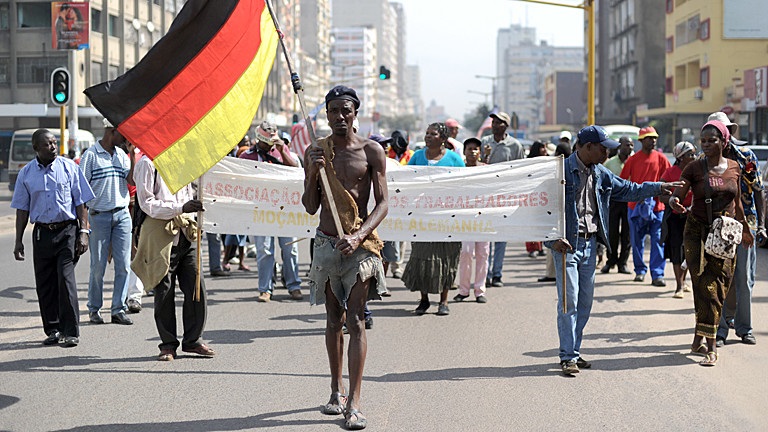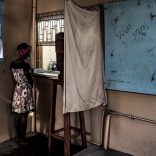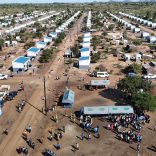Mozambique: Spanish Foundation stresses urgency of efforts to combat child mortality - Watch
Mozambique. The 30-year-long protest which only the pandemic could stop

File photo: DW
Nothing stopped Mozambique’s best-known protest march, now in its 30th year. Nothing, that is, until Covid-19 and the suspension of the “Madgermanes” march, dictated by pandemic prevention measures.
In 1990, not even the restrictions on liberties imposed by the ruling Mozambican Liberation Front (Frelimo) prevented the unprecedented demonstration by former Mozambican workers in East Germany who had returned to the country after the fall of the Berlin Wall.
Dissatisfied with the lack of payment of part of their salaries and social security contributions that they say Germany had transferred to Mozambique, about 2,000 Madgermanes – as those who worked in the former German Democratic Republic (GDR) in the scope the relations between the countries of the socialist bloc are known – surprised Maputo and the country.
On the morning of December 3, 1990, they took to the streets with posters and chants demanding their rights, protesting outside the Ministry of Labour in the centre of the capital.
“We were in the one-party regime, and the government’s response at the time was very violent,” Arnaldo Mendes, one of the Madgermanes’ leaders, told Lusa. “The marches were violently repressed.”
The police crackdown interrupted the Wednesday marches, but they returned with renewed vigour after the first general elections of 1994 in Mozambique, this time with the right to police escort. Still, there were tense episodes with the police and government.
“We resumed very strongly, after the establishment of the multiparty regime, because we demanded the restitution of the rights that we had earned in Germany, which the Government had usurped,” relates Arnaldo Mendes, who worked in the Walzwerk Finow III metal works in Brandenburg from 1988 to 1990.
Persistence gave the Madgermanes access to the International Labour Day march on May 1, an event closely controlled by Frelimo, but relations with the authorities soured when inflammatory comments from members of the movement led to a bitter exchange of words between the then Mozambican president Joaquim Chissano and workers, an episode broadcast on national television.
Although Chissano said that “he owed nothing” to the Madgermanes, Armando Guebuza’s government agreed to compensate them, but the protests did not stop, the money offered being considered “negligible” by the protesters.
The executive of the current president, Filipe Nyusi, “inherited” the marches and demands, every Wednesday, under police escort, until the arrival of Covid-19 and the state of emergency, on April 1.
“The President of the Republic asked us to stop the marches, because of the Covid-19 situation,” Mendes said, donning a red cap with a miniature German flag at the front.
Covid-19 or no, Mendes says the decision to suspend the march was prompted by signs of hope that the dispute could be resolved, the group’s action having drawn the attention of German civil society organisations, who have been lobbying Berlin to find a joint solution with Maputo, he explained.
“Even in a health crisis, there is no conformism as long as there is injustice. We are calm, because we feel that there are signs, thanks to the involvement of German civil society,” he said.
Without Covid-19, the former workers would continue to perform their ritual gathering in the Jardim 28 de Maio, popularly renamed the ‘Jardim dos Madgermanes’, followed by the walk with songs and banners through some of the capital’s main avenues.
However, there would not be more than the 1,000, as when he marches started in December 1990, because many have died from illness, Mendes said. Between 200 and 250 remain, he said, the figure at the last street protest before the pandemic.
Official data indicate that more than 11,000 Mozambicans were hired to work in former East Germany in the 1980s, within the scope of cooperation and solidarity relations between countries of the socialist bloc.
On April 1, 2020, a State of Emergency to curb the coronavirus pandemic was enacted in Mozambique, giving way on September 7 to the State of Calamity, which continues to limit the size of public gatherings in the country.












Leave a Reply
Be the First to Comment!
You must be logged in to post a comment.
You must be logged in to post a comment.